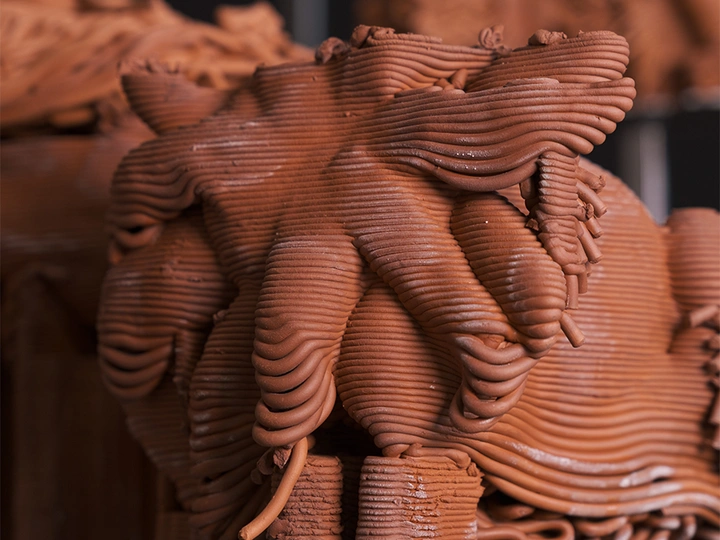Reproductive Wilderness

In her practice, Shonali takes an interdisciplinary approach with a keen interest in Xeno and feminist space-making. In her recent work ‘Reproductive Wilderness’, she draws a parallel between industry-driven biological and design processes highlighting social systems in which the politics of reproduction is currently embedded. Shonali is a member of faculty at the Hogeschool Utrecht, since 2017. She is engaged in teaching and developing content on inclusive and circular design strategies.
Reproductive Wilderness is an artistic process of slow gestation. The project was developed when the author was pregnant and became a canvas to reflect on the dynamic process of reproduction within art and architecture. The project allowed for the understanding that gestation is a developmental process entangled in the womb's human-non-human materiality. The work so far has gone through 7 stages of development, adding variation and complexity with each phase. Each of them leads towards moments of impermanence, transformation, death and rebirth. Questioning at each stage modes through which architecture is reproduced. In architecture the original sketch is instrumental to the vision of the producer, in this process of a gestating womb, each phase is a moment to tip off into newer dimensions. Co-authoring with different analogue and digital materiality. Not detached to the origin, but rather about a continuum, of evolution, that is maternal and inclusive.
An excerpt of my writing on the topic was published in Koozarch in December 2023 and can be found below. https://www.koozarch.com/essays/reproductive-wilderness-decolonising-the-womb
For the LINA proposal, I am interested in encapsulating my research into unpacking concepts of maternal architecture and how this could impact an inclusive future, into a book or publication. Maternal here does not imply the cis-gendered body that is currently the cultural carrier of the womb. But rather in the concepts brought to life by Sophie Lewis (2019), Emanuele Coccia (2021) and Donna Haraway (2016), that everyone who has passed through the womb, is inherently part of its divisibility. Challenging industrially driven, ideas of reproduction and leading towards concepts of 'care', 'generational continuity' and 'inclusive futures'.